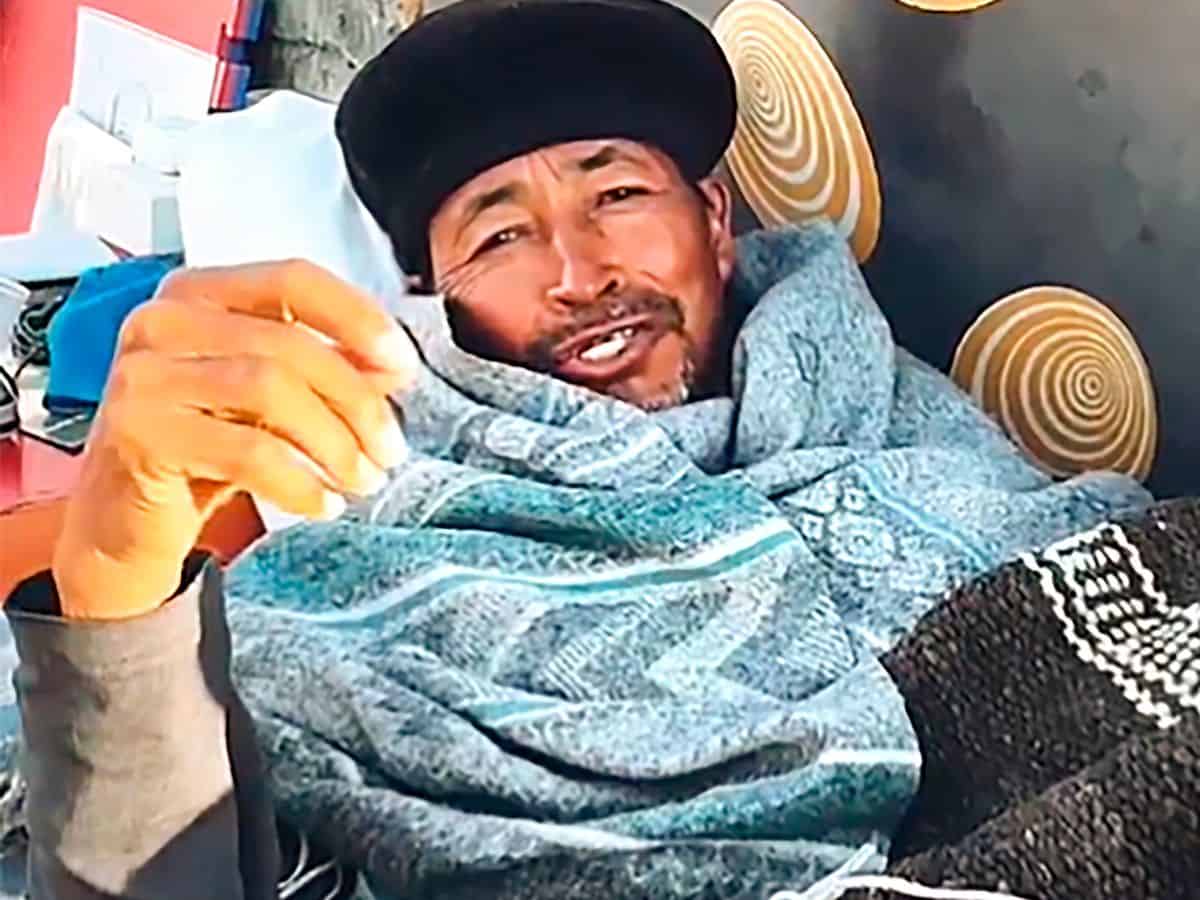
New Delhi: Statehood and constitutional protection under the Sixth Schedule of the Constitution will not impact defence and national security-related projects in Ladakh, climate activist Sonam Wangchuk said on Tuesday.
Wangchuk said this during an online meeting with climate groups and civil society organisations, convened to review preparations for the planned march to Changthang (in the east of Leh along the border with China) on April 7.
He recently went on a 21-day fast, surviving only on salt and water, to demand that Ladakh be given statehood and included under the Sixth Schedule, which will help protect the ecologically fragile region from “greedy” industries.
When a participant asked if the campaign to demand Ladakh’s inclusion in the Sixth Schedule will impact defence and national security-related projects in border areas, Wangchuk said, “National security is our topmost priority. It’s paramount. We are seeking protection from mindless exploitation by industries.”
In an online press conference last week, Wangchuk had said: “While industries exploit the riches of the Himalayas, the local people bear the brunt of disasters. The government uses taxpayers’ money for rehabilitation efforts. So, those who reap the benefits are not held accountable.”
“Bureaucrats from places like Chandigarh or Lucknow may not fully understand its fragility. The best of all could make mistakes and the worst of all would sell it off to industries,” he had said.
Post the repeal of Article 370, Ladakh became a separate Union Territory “without legislature”. The Buddhist-dominated Leh district had long demanded UT status because it felt neglected by the erstwhile Jammu and Kashmir government.
However, with the administration of the region now completely in the hands of bureaucrats, many in Ladakh demand that the UT be included in the Sixth Schedule, which provides for the formation of Autonomous District Councils (ADCs) with legislative, judicial, and administrative autonomy within a state.
These councils administer areas under their jurisdiction, making laws on specific matters with the governor’s assent. They can establish village councils or courts for dispute resolution and can manage facilities and services within their areas, including education and healthcare. They also have the authority to impose taxes and regulate certain activities.
Ladakh’s only MP, Jamyang Tsering Namgyal of the BJP, had previously demanded that the region be included in the Sixth Schedule to safeguard land, employment, and cultural identity of the local population.
Union Tribal Affairs Minister Arjun Munda had in 2019 promised to do “whatever is required from a constitutional perspective to protect them”.
In September 2019, the National Commission for Scheduled Tribes (NCST) wrote to Home Minister Amit Shah and Munda, recommending that Ladakh be declared a tribal area under the Sixth Schedule.
Not only has the government failed to deliver on its promise, but it is also not providing a reason for not doing so, Wangchuk said.
“After four years of avoiding our demands, in a meeting on March 4, they clearly said no,” he said, adding that the people of Ladakh would now hold them accountable for the promises they made during the last general elections.
On the lines of Mahatma Gandhi’s Dandi March, Wangchuk has planned the ‘border march’ on April 7 to show “destruction in the name of development”.



